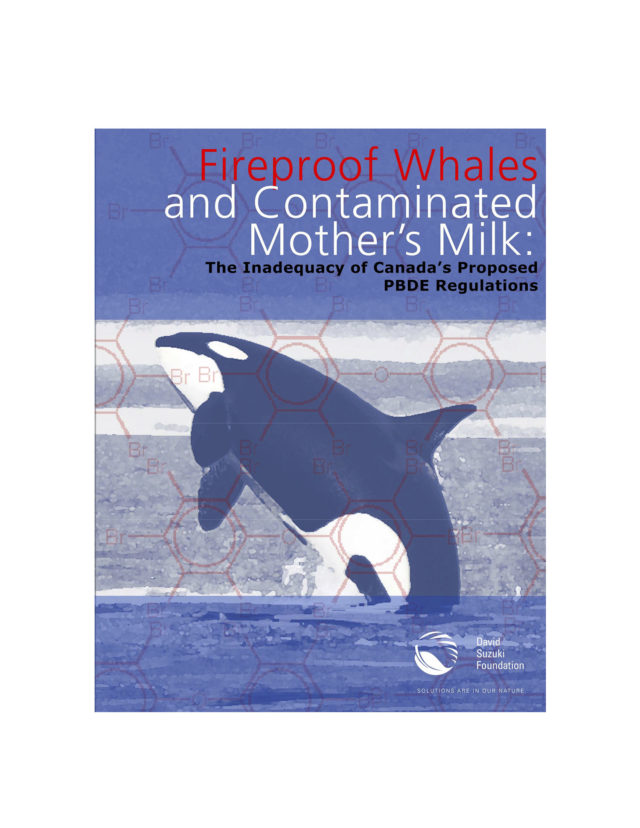Fireproof Whales and Contaminated Mother’s Milk: The Inadequacy of Canada’s Proposed PBDE Regulations
Published by:
David Suzuki Foundation
Authored by:
David R. Boyd,
Scott Wallace
Biodiversity species at risk, grizzly bears, orcas, policy and regulation, pesticides, chemicals and toxins, commercial products, conservation
PBDEs (polybrominated diphenyl ethers) are a group of chemicals used as flame retardants in a wide range of products, including clothing, computers, electronic equipment, motor vehicles, carpets and furniture. The discovery that PBDEs are rapidly accumulating in human breast milk, in wildlife species from killer whales to grizzly bears and in the environment itself from the Arctic to the Great Lakes, has caused an explosion of concern about the negative health and environmental effects of PBDEs.
This report was prepared as a critique of inadequate PBDE regulations proposed — and since finalized — by Environment Canada. The Canadian regulation targets only obsolete commercial mixtures of PBDEs and exempts the most widely used form of the chemical (decaBDE). There is ample scientific evidence of the adverse health and environmental consequences of all PBDEs — pentaBDE, octaBDE, and decaBDE — to justify a comprehensive ban.
